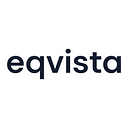What are the main benefits of holding QSBS for founders?
When your startup goes public through an initial public offering (IPO) and you sell some of your shares, a significant portion of the stake’s value will be subject to capital gains tax. This is because founders typically benefit from a substantial increase in share value between the issue date and the IPO.
Even with long-term capital gains treatment, the tax rate can be as high as 20%.
Fortunately, qualified small business stock (QSBS) treatment offers an effective way to minimize or even eliminate these exorbitant tax liabilities. In this article, we’ll explore the key tax benefits of QSBS treatment for founders and outline how you can qualify to take advantage of these benefits. Read on to learn more!
What are QSBS benefits for founders?
Qualified small business stocks (QSBS) offer up to 100% tax exclusion on capital gains for individual investors if they are held for at least five years and were received through an original issue.
While not all private equity investors may want to hold their investments for five years, startup founders are inherently long-term shareholders. Hence, QSBS benefits not only support fundraising activities by incentivizing incoming investors but also offer significant advantages from a founder’s perspective.
Although capital gains exclusion is the primary benefit of QSB status, this is not QSB status’ only tax benefit.
Benefits of QSBS for founders
- Up to 100% tax exclusion on capital gains
- Exemption from Alternative Minimum Tax (AMT)
- QSBS benefits for state taxes
- Ease in attracting talent as it enhances tax efficiency of equity compensation
In 1969, the alternative minimum tax (AMT) was introduced to ensure that high-income individuals could not utilize tax exemptions and other benefits to pay little to no taxes. However, since the purpose of QSBS is to stimulate investments in small businesses and nurture job creation, QSB stocks are also exempt from AMT.
Furthermore, in most states, once you attain QSB status, you can receive benefits such as full or partial QSBS benefits for state taxes, no state income tax, and no state capital gains tax.
You must also note that QSBS benefits apply to QSB stock received in exchange for cash as well as property and services. This means that achieving QSB status can help startups preserve cash reserves by making equity compensation more tax-efficient.
If you wish to issue equity compensation to attract talent and preserve cash flow, you must not overlook getting a 409A valuation to establish your company’s fair market value (FMV). These valuations are necessary to establish the employee or service provider’s income from equity compensation.
How to qualify for QSBS benefits?
There are three important criteria to qualify for QSBS benefits. First, the company must be an American C-corporation operating domestically in a qualified business. Second, the company’s gross assets must be worth up to $50 million and 80% of these assets must be used for qualified businesses. Third, you must receive the QSB stock via the original issue and hold it for at least five years.
At this point, you must understand what is a qualified business. While Section 1202 of the Internal Revenue Code (IRC) does not explicitly define a qualified business, it does denote which businesses are excluded from being qualified businesses. For instance, a business where the reputation or skill of one or more employees is a primary asset cannot be a qualified business. Other businesses excluded from qualification include:
- Farming
- Hospitality
- Certain natural resource industries
- Investing
- Leasing
- Financing
- Financial services
- Brokerage services
- Consulting
- Athletics
- Performing arts
- Health
You can check the complete list here.
If your business has not been incorporated as a C-corporation, you should consider doing so. This will involve selecting a unique name, drafting articles of association, issuing shares, electing a board of directors, acquiring an Employer Identification Number (EIN), acquiring key licenses and permits, and choosing a registered agent. By doing so, your company can have an unlimited number of shareholders, which enhances your fundraising ability.
Depending on your state of incorporation, the process may involve a few extra steps. Hence, you must consult experts such as Eqvista to guide you through the process. For in-depth coverage of converting a pass-through entity such as partnerships and sole proprietorships into a C-corporation, check out this article.
The opinion of a reputed valuation expert can go a long way in attaining QSB status. At Eqvista, we help businesses attain QSBS status by auditing them and verifying the value and usage of their assets. To know more about our service, contact us!
Eqvista- Your gateway to tax efficiency!
If your startup is an American C-corporation operating domestically in a qualified business, there is a chance that it may attain qualified small business (QSB) status. In this case, you may enjoy up to 100% exclusion of any capital gains if you hold your stocks for at least five years.
Attaining QSB status also exempts you from alternative minimum tax (AMT), and certain state taxes, and makes your equity compensation highly tax-efficient and as a result, extremely attractive to potential hires.
Eqvista can help you receive these tax benefits by validating if your assets are worth up to $50 million and 80% of them are being used in qualified businesses which is a key condition for QSB status. If you would like to learn more about our services and your potential tax savings, contact us now!
